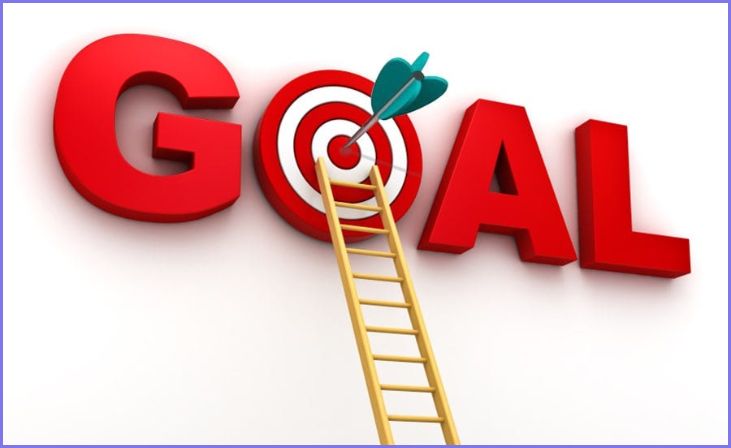Constantly Improve Your Skills – In a rapidly evolving world, the pursuit of constant skill improvement has become not just a personal aspiration but a professional necessity. Embracing a growth mindset and cultivating a positive attitude towards challenges are foundational to this journey.
This guide explores the critical steps in enhancing skills, from self-assessment and goal-setting to resource utilization and hands-on practice. We delve into the significance of seeking feedback, adapting to change, and overcoming challenges. With a focus on practical application and real-world scenarios, we emphasize the importance of staying relevant in a dynamic landscape.
Through case studies and examples, we highlight the transformative power of continuous learning, encouraging individuals to not only survive but thrive in the face of change. As we navigate the complexities of skill improvement, this guide serves as a roadmap for those committed to unlocking their full potential through lifelong learning.
Constantly Improve Your Skills
Set Clear Goals

Define specific, achievable goals for targeted skill enhancement. Break them into manageable tasks, outlining what you aim to learn, utilizing set resources, and establishing a realistic timeline. Whether it’s mastering a programming language or refining communication skills, clear objectives provide direction and focus for continuous improvement.
Regularly evaluate progress, seek constructive feedback, and adjust your plan accordingly. This structured approach ensures a purposeful and measurable path towards skill development.
Also, Read – Best RPG Games
Create a Learning Plan
- Define Objectives: Clearly outline what you want to learn and achieve.
- Break Down Tasks: Divide the learning process into manageable steps.
- Allocate Time: Set aside dedicated periods for focused learning.
- Select Resources: Choose reliable materials, courses, or mentors.
- Create a Timeline: Establish deadlines for completing each learning milestone.
- Regular Assessments: Periodically evaluate your progress and adjust the plan as needed.
- Seek Feedback: Actively solicit input from peers, mentors, or online communities.
- Adaptability: Stay open to new resources and adjust the plan based on evolving needs.
- Celebrate Milestones: Acknowledge and reward yourself for achieving goals.
- Reflect and Iterate: Regularly reflect on the effectiveness of your plan and make iterative improvements.
Stay Informed
Stay informed by subscribing to industry newsletters, following reputable blogs, and joining relevant online communities. Attend conferences, webinars, and networking events to keep abreast of the latest trends and advancements. Cultivate a habit of reading research papers and articles within your field and beyond.
Actively engage in discussions on social media platforms and forums to exchange ideas and insights. Regularly check updates from influential thought leaders. Being consistently informed ensures you remain knowledgeable about evolving practices and emerging opportunities in your domain.
Practice Regularly
Consistent practice is key for skill improvement. Dedicate regular, focused time to actively engage with the skills you aim to develop. Establish a routine that allows for sustained and deliberate practice, whether it’s daily coding exercises, writing sessions, or hands-on projects.
Regular repetition reinforces learning, enhances muscle memory, and promotes proficiency. Strive for quality practice over quantity, ensuring each session is purposeful and challenging.
Embrace a growth mindset, understanding that improvement comes through consistent, intentional effort. Regular practice forms the foundation for mastery and sustained skill development.
Seek Feedback

Actively seek constructive feedback to accelerate your growth. Request input from peers, mentors, or experts in your field. Be open to diverse perspectives, as valuable insights often come from different viewpoints. Create a supportive environment where feedback is encouraged and fosters improvement. Specifically, ask for feedback on your strengths and areas for development. Utilize this input to refine your skills, enhance performance, and build on your successes. Regularly seeking feedback creates a continuous loop of improvement, guiding you towards excellence in your endeavors.
Also, Read – Steps to Safeguard Your Data Security
Join Communities
Connect with like-minded individuals by joining online communities, forums, and local meetups in your field. Engaging in these communities provides a platform to share experiences, seek advice, and stay updated on industry trends. Participate actively by contributing insights, asking questions, and collaborating on projects.
Networking within these circles can lead to valuable connections, mentorship opportunities, and exposure to diverse perspectives. Building a community of peers fosters a supportive environment for continuous learning and professional development.
Stay connected, exchange ideas, and leverage the collective knowledge within these communities to enhance your skills and stay current in your chosen field.
Take Courses and Workshops
Enroll in targeted courses and workshops to acquire new skills efficiently. Choose reputable platforms offering relevant content, and ensure the courses align with your goals. Structured learning environments provide in-depth knowledge and often include practical applications.
Regularly dedicate time for coursework, balancing theory with hands-on practice. Stay updated on industry-specific advancements through specialized workshops.
Leverage the interactive nature of these educational experiences to gain insights, ask questions, and collaborate with peers. Continuous enrollment in courses and workshops serves as a dynamic strategy to enhance your skill set and stay competitive in a rapidly evolving professional landscape.
Read Widely
Expand your knowledge by voraciously reading across various subjects, not just in your immediate field. Delve into books, articles, and research papers to gain diverse perspectives and insights. Explore both fiction and non-fiction to stimulate creativity and critical thinking.
Follow reputable blogs and publications to stay current on emerging trends and broaden your intellectual horizons. Reading widely enhances your understanding of the world, sharpens your analytical skills, and provides a well-rounded knowledge base.
Embrace the opportunity to learn from different disciplines, fostering a holistic approach to problem-solving and innovation in both personal and professional contexts.
Stay Adaptable
Cultivate adaptability as a core skill by embracing change and staying open to new ideas and technologies. Actively seek opportunities to learn and evolve with the dynamic nature of your field. Stay curious, explore emerging trends, and be willing to pivot your strategies when necessary.
Develop a mindset that views challenges as learning opportunities and change as a catalyst for growth.
Continuously assess and upgrade your skill set to remain relevant in an ever-changing professional landscape. Adaptable individuals thrive in diverse environments, making them valuable contributors in any context.
Reflect on Your Progress

Regularly reflect on your journey to assess achievements and identify areas for improvement. Create a habit of introspection, considering both successes and setbacks. Evaluate how your skills have evolved and whether you’ve met your goals.
Recognize patterns, adjust strategies, and celebrate milestones. This reflective practice provides valuable insights, enhancing self-awareness and guiding future actions.
Use feedback from mentors, peers, and personal assessments to refine your approach continually. By consciously reflecting on your progress, you ensure a more intentional and effective path toward your objectives, fostering a mindset of continuous improvement and personal development.
Conclusion
In conclusion, the journey of constant skill improvement is a dynamic process that empowers individuals to adapt, grow, and thrive in an ever-changing world. By embracing a growth mindset, setting intentional goals, seeking feedback, and staying resilient in the face of challenges, one can navigate the path to continuous learning successfully.
As we celebrate milestones and acknowledge setbacks, the commitment to refining skills becomes a lifelong endeavor. In a landscape where adaptability is key, this guide stands as a reminder that the pursuit of improvement is not just a personal choice but a strategic advantage in shaping a successful and fulfilling future.
FAQs
Conduct a self-assessment to identify your current skill set. Pinpoint areas that align with your goals or are essential in your field. Set realistic goals for improvement.
Utilize online courses, books, mentorship, and networking. These resources provide diverse perspectives and opportunities for learning and growth.
Embrace a growth mindset, seek constructive feedback, and be resilient in the face of setbacks. Learn from failures and view challenges as opportunities for growth.







